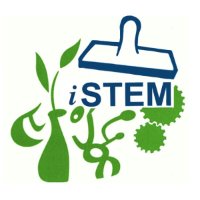VOTE Package: Pimp your garden

My Garden Lab is a citizen science project about gardens and their importance for the local living environment. Citizens are invited to provide data about their garden, in particular about vegetation and management. After all, gardens occupy a considerable surface area of the Flemish territory, namely about 10%. Precisely because gardens take up so much space, they are important in all kinds of processes such as climate regulation, water storage, biodiversity, and so on.
This STEM package attempts to demonstrate the importance of gardens. It provides a guide for educators to work on garden ecosystem services. The whole is modular with a clear structure (see schematic presentation below), but teachers also have the space to make adjustments themselves in function of their target audience, the possible final objectives to be reached and the time to work on it. There is also room to add content yourself and to expand the modules in function of your own needs. Each module has a didactic and substantive elaboration.
- Module one introduces the concept of ecosystem services (or benefits of nature). A number of ecological problems in Flanders are addressed and the students make the connection with the role that gardens can play. In addition to the general information (1_Introduction to ecosystem services.docx), the website also provides a fill-in sheet that can be used for group work on ecosystem services of gardens (Fill-in sheet category ecosystem services.docx) and the photos of the gardens are offered in high resolution ( gardens images recognizing ecosystem services.zip).
- Module two focuses on the garden selected for further study. This can be the school garden, but also the individual garden of students at home. The intention is that students gain insight into the ecosystem services of that garden (2_Calculate your garden score.docx). To this end, they distinguish the different types of soil use and these are digitized. The teacher is given the choice between a digitization in Google Earth or in QGIS. Depending on this choice, the teacher uses the different files to calculate the garden score. Optionally, you can also choose to let fast learners work with QGIS and others with Google Earth. Within class differentiation is therefore possible. Once learners have insight into ecosystem services and the score of the chosen garden, they can delve into one or more ecosystem services.
- In Module three, it was decided to develop the ecosystem service Water Management (3A_Watermanagement.docx), as well as to work on Heat Regulation (3B_Hitterregulation.docx). Both commands also contain a QGIS command. As a teacher, there is certainly room to set your own accents and thus to study your own ecosystem services such as biodiversity, pollination, etc. Interests of students, chosen study options, links with curricula, project work, will certainly play a role in this.
- Finally, in Module four we return to the garden score of the selected garden (4_Pimp your garden.docx). In function of the new knowledge and insights that the students have gained, they make proposals to organize their garden differently and to pimp it in terms of ecosystem services. Moreover, the tips on the Mijn Tuinlab website certainly offer a lot of inspiration. Normally, the garden score will therefore also be increased if the calculation from Module two is performed again. If that's the case, fine. If not, time for discussion.
And then get to work to effectively implement the adjustments in the selected garden.
Are you hesitant to get started with the material? We offer you a number of instructional videos to familiarize you with the material of My Garden Lab. It is best to save these on your PC or laptop before viewing them.
Mijn Tuinlab is a citizen science project subsidized by the Department of Economy, Science and Innovation (EWI) of the Flemish Government, realized as a collaboration between Erasmus University College Brussels, KU Leuven and Natuurpunt. Within My Garden Lab, KU Leuven took the lead in developing an educational STEM package for students of the third stage of secondary education.
Log in or register to view the full educational resource
- free learning resources;
- for all ages and subjects;
- easily searchable on lesson topic.


